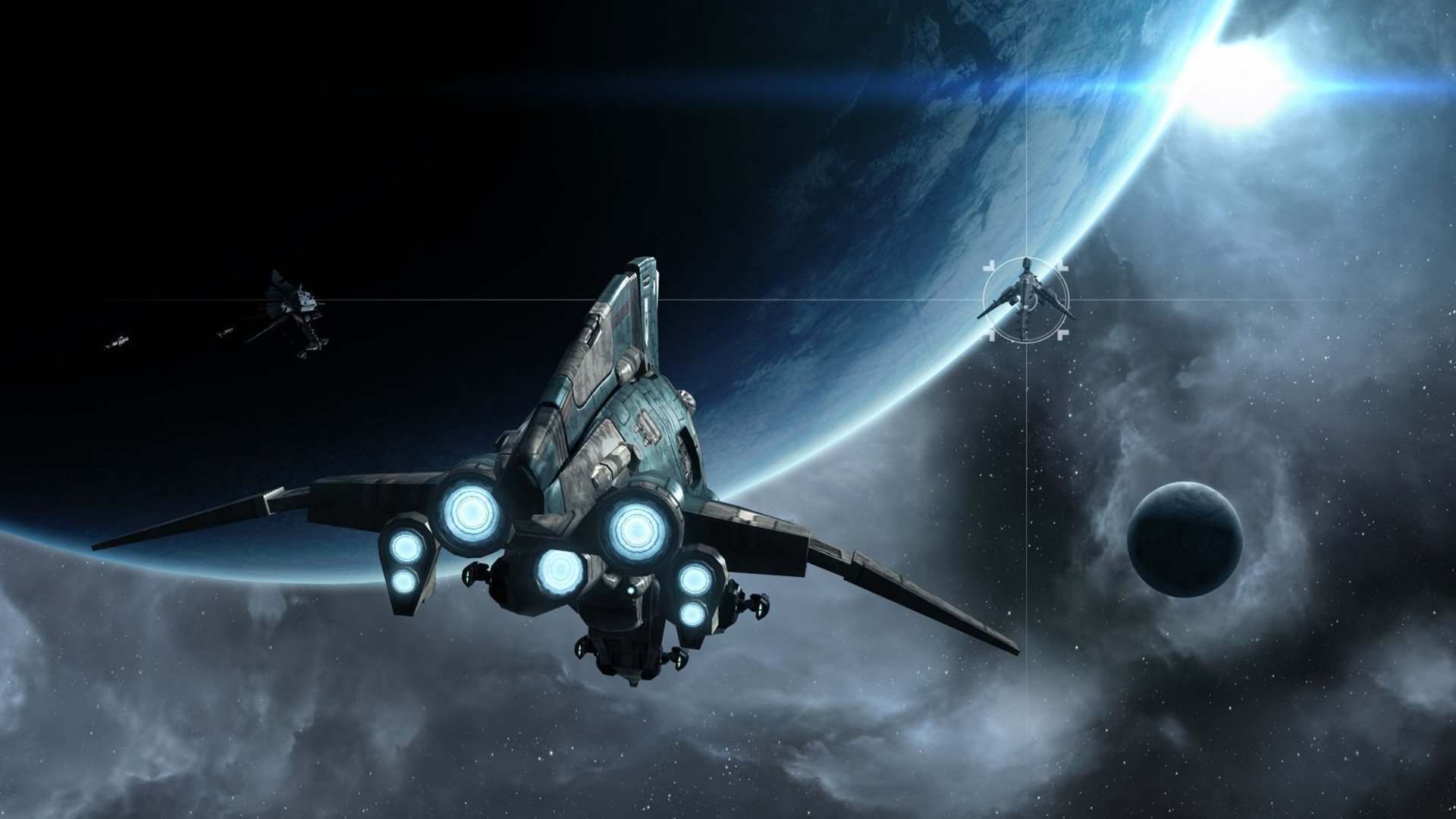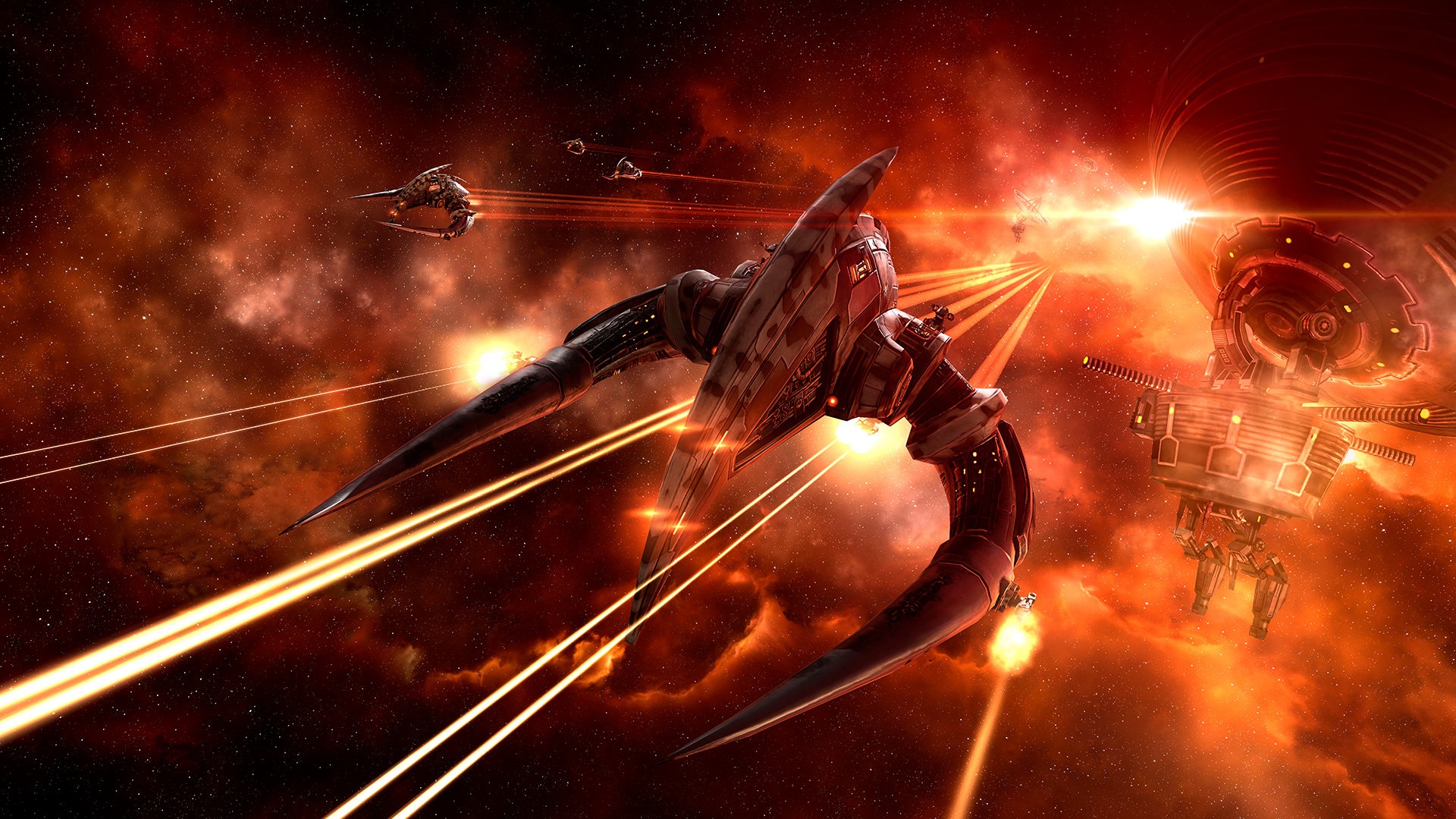EVE Online to implement grief counselling when new players lose their first ship
Dying in EVE Online will still suck, but soon someone will help you understand what went wrong.

EVE Online is a notoriously tough game to get into. It's so tough, in fact, that of the 600,000 new players that tried to play it last year, only around 10 percent of them played it for longer than seven days.
Two weeks ago, developer CCP Games held its annual Fanfest convention at a Finnish player's house (I was there to cover the whole, sordid affair and have a feature coming soon). During the keynote presentation, CEO Hilmar Veigar Pétursson revealed that, contrary to most other MMOs and despite its age, EVE Online attracts more new players each year. Few of them, however, play longer than seven days. And to fix that, CCP Games is trying everything, including an upcoming feature that will provide a kind of grief counselling for new players who lose their first ship.
This feature, Pétursson explains, is part of a company-wide initiative to solve the greatest threat to the virtual galaxy of New Eden: Getting new players to actually hang out. "We're dedicating serious resources to this, which we have not done before," Pétursson says. "We have not done this level of investment, but we're doing it now because we've seen from our own numbers it is the biggest opportunity for the game."
Sorry for your loss
If you lose your ship and you understand the context of why you lost it and it makes you come back stronger, that is the moment.
Hilmar Pétursson, CEO of CCP Games
That EVE Online is an unapproachable MMO should surprise no one—even if you've never played it yourself. It's reputation for cruel betrayals and dastardly plots spreads far beyond the confines of its own community. But the only thing scarier than the players-turned-pirates waiting to blow you up is EVE's dense user interface and indomitable layering of complex sandbox systems. It's an intimidating game to learn, and one that takes years to master.
"If we were an endurance sport, EVE would be the Ironman Triathlon," Pétursson said. "Because EVE is such a legendary gaming experience with insane depth and complexity, onboarding you into that domain is like any extreme activity—like doing an Ironman race."
Of course, EVE doesn't require incredible mental or physical stamina to play, and its reputation as a merciless game where everyone is an asshole is mostly manufactured (the EVE community has just as many heroes as villains). But even so, it's an enormously challenging game to get into—in part because there's so much to learn and not an intuitive way to learn it.
Enter systems like the improved Agency, an interactive guide that shows players how to get involved with various PVE-driven activities found in New Eden like mining and exploration. This comes alongside out-of-game improvements like a more refined account management system and proactive customer support. There's even a new meet and greet program where volunteers and in-game moderators will message new players who just logged in for their first time to say hello and answer any questions they have.
Keep up to date with the most important stories and the best deals, as picked by the PC Gamer team.
That's where the idea to do grief counselling for new players started. Of all the most frustrating hurdles a new EVE Online player most overcome, losing your first ship is often the most devastating. Unlike other MMOs, death in EVE has serious consequences: You lose your ship, its equipped modules (like guns), whatever was in the cargo hold, and several other potentially expensive things. It's why the first rule of EVE Online is never fly what you can't afford to lose.
Right now, Pétursson said it's common for new players to die and, thanks to EVE's abstract depiction of combat and UI, have no understanding of what led to their precious ship going up in flames. Sometimes they'll email customer support (which will often give them a ship as a gift), but players are also just as likely to throw their hands up in frustration and quit, like I did the first few times I started playing.
But right now CCP Games is building the tools necessary to alert its in-game moderators whenever a new player loses its first ship. That moderator can then message the player and help them understand what went wrong and possibly reimburse their ship. "We're going to start by doing it manually, so we can cover all the cases," Pétursson explains. "But once we've done it manually [for awhile], we can start to automate the process of grief counselling when you lose your ship for the first time."

That might sound like CCP Games is going too soft on its players, but the idea is to simulate what Pétursson calls EVE Online's "magic moment"—that turning point where a person goes from being a noob to a true EVE player. "If you lose your ship and you understand the context of why you lost it and it makes you come back stronger, that is the moment," Pétursson says.
Ideally these moments should happen organically with other players. "What happens a lot in EVE is that a veteran player kills you and if your reaction is a certain way—not just crying about it but asking why—usually what happens is that the veteran player gives you money to buy a new spaceship, and if you show that [you're willing to learn], they'll even invite you to [fly with them]," Pétursson says. But EVE Online is a big sandbox with tens of thousands of different players—and not everyone is that generous. That's why CCP Games is hoping this "proactive grief counselling" will help new players overcome one of the biggest obstacles to learning what makes EVE special.
With over 7 years of experience with in-depth feature reporting, Steven's mission is to chronicle the fascinating ways that games intersect our lives. Whether it's colossal in-game wars in an MMO, or long-haul truckers who turn to games to protect them from the loneliness of the open road, Steven tries to unearth PC gaming's greatest untold stories. His love of PC gaming started extremely early. Without money to spend, he spent an entire day watching the progress bar on a 25mb download of the Heroes of Might and Magic 2 demo that he then played for at least a hundred hours. It was a good demo.


